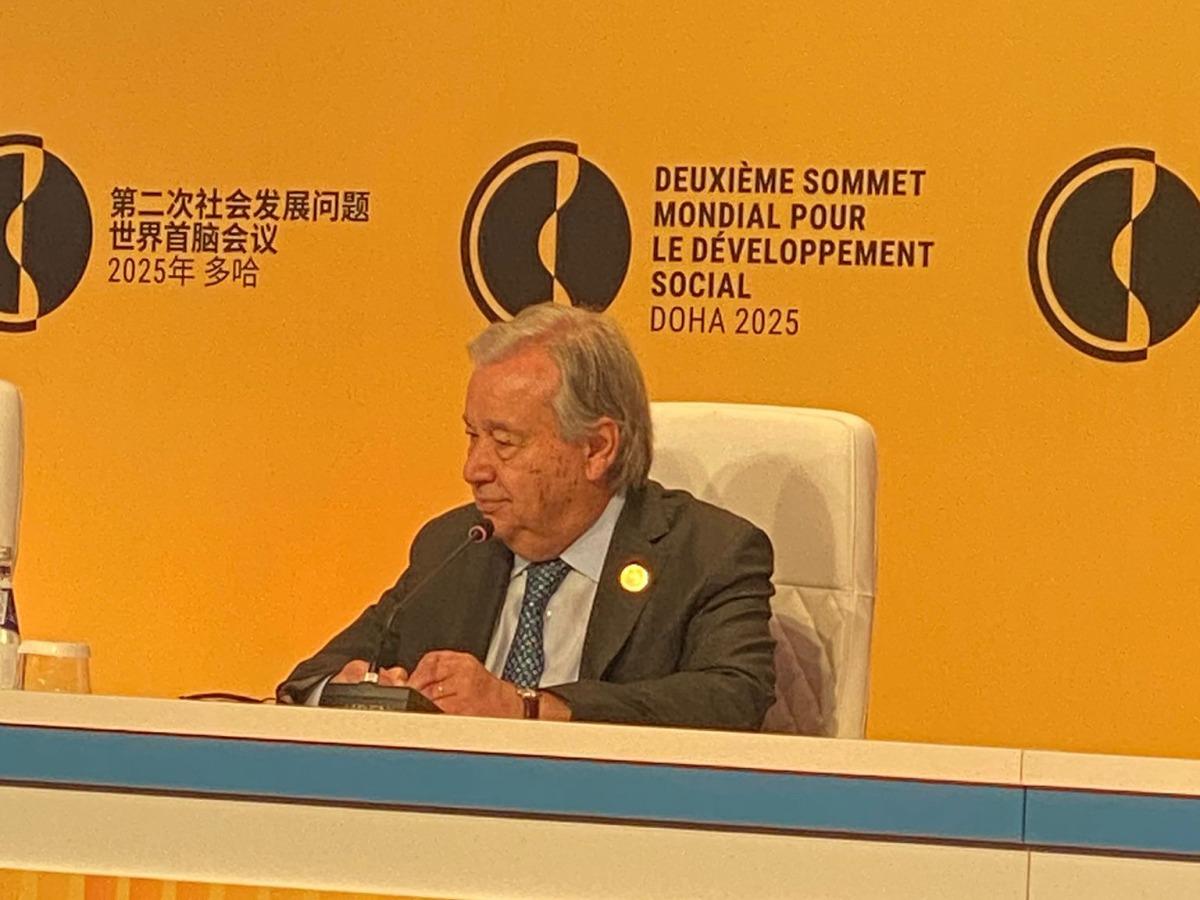
Doha Political Declaration Calls For More Just And Inclusive Societies
Doha, Qatar: Amid growing geopolitical tensions and widening inequalities, global leaders at the Second World Summit for Social Development adopted the Doha Political Declaration yesterday, reaffirming their collective resolve to advance more just and inclusive societies worldwide.
The adoption of the Declaration marks a shared commitment by governments to tackle poverty, create decent jobs, advance equality and protect human rights, underlining that social development is not only a moral imperative, but also essential for peace, stability and sustainable growth.
“True development isn't about prosperity for the few,” said UN Secretary-General António Guterres at the opening press conference.“It's about opportunities for the many, grounded in social justice, full employment, and human dignity.” Calling the Doha Political Declaration a“booster shot for development” and“a people's plan”, he highlighted urgent action in four key areas: accelerate action to end poverty and inequality through stronger social systems; create decent jobs through skills, inclusion, and equal opportunity; unlock finance for developing countries by reforming global systems and easing debt; and ensure no one is left behind, empowering those most at risk of exclusion.
Bringing together more than 40 Heads of State and Government, 170 ministerial-level representatives, heads of international organizations, youth, civil society and delegates from around the globe, the Summit is convening over 14,000 stakeholders to advance inclusive social development and reaffirm the pledge to leave no one behind.
Thirty years after the landmark 1995 Copenhagen Declaration, adopted during the first World Summit for Social Development, the global landscape for social development has evolved dramatically, shaped by climate change, pandemics, migration, and the rapid digital transformation driven by artificial intelligence.
The Doha Political Declaration renews and expands the 1995 commitments to meet today's complex challenges, strengthening action on the interlinked pillars of poverty eradication, decent work, and social inclusion. It calls for universal, gender-responsive social protection and equitable access to health and education while emphasizing the need to counter misinformation and hate speech that threaten democratic values.
The Declaration also highlights the importance of safe and inclusive digital transformation and ensures that youth, older persons, persons with disabilities, Indigenous Peoples, and other marginalized groups are meaningfully engaged in shaping policies that affect their lives.
The Doha Solutions Platform for Social Development highlighted new and newly resourced commitments and initiatives from Governments and stakeholders that address social development challenges through innovative and transformative action.
“The world doesn't need more promises - it needs action that changes lives and makes dignity a daily reality for all,” said Annalena Baerbock, President of the 80th Session of the UN General Assembly.“That is what the Doha Solutions Platform for Social Development is all about: turning commitment into concrete solutions and renewing hope by proving that social development is one of the smartest investments we can make.” She urged countries to come together to reinvigorate multilateralism and fast-track progress toward a world where no one is left behind.
Ahead of the Summit, Member States and stakeholders were invited to submit their initiatives to the Summit Secretariat for possible inclusion on the Doha Solutions Platform.
Over the past three decades, progress has lifted millions out of poverty and expanded access to education and health care. Since 1995, nearly 1.5 billion people have escaped extreme poverty. Working poverty has dropped from 27.9 per cent in 2000 to 6.9 per cent in 2024, and child labour has been cut by more than half since 1995. More than half of the world's population is now covered by at least one social protection scheme.
The Summit calls for renewed determination to address these challenges, recognizing that global crises - from climate change to conflict - threaten to reverse hard-won gains.

Legal Disclaimer:
MENAFN provides the
information “as is” without warranty of any kind. We do not accept
any responsibility or liability for the accuracy, content, images,
videos, licenses, completeness, legality, or reliability of the information
contained in this article. If you have any complaints or copyright
issues related to this article, kindly contact the provider above.


















Comments
No comment